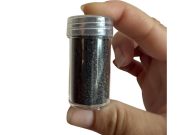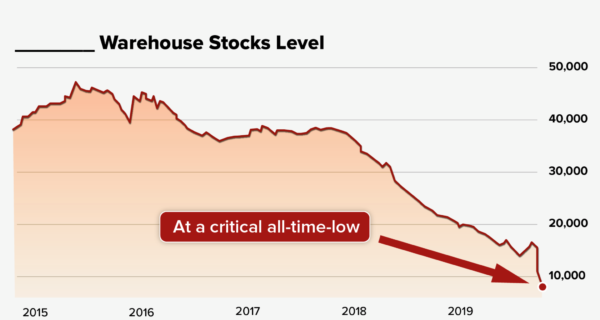Low priced stocks have been getting more attention lately. The psychological appeal of being able to buy many shares at a small dollar cost is what draws many investors in. Often, cheap stocks are subject to wild price swings, making it seem easier to reap big gains in a short time. The truth is, cheap stocks are full of risk and aren’t for the faint of heart. But the possibility of getting in on the next big thing early is attractive enough to make a compelling case for taking small positions in some low priced stocks.
We’ve identified a few cheap stocks that stand out for their promising potential.
Plug power (PLUG)
Plug Power designs and manufactures hydrogen fuel cell systems that replace conventional batteries in equipment and vehicles powered by electricity.
“Hydrogen is expected to be one of the fastest growing segments of the energy industry representing as much as 18% of the energy mix by 2050. Today, Plug Power is the largest user of liquid hydrogen and has built more hydrogen refueling stations than anyone else in the world,” stated its Q1 2020 letter to shareholders.
Plug Power is currently moving forward with expansion beyond its core capacity. The company will soon compete in the large-scale backup power market. Plug management expects its new GenSure HP (high power) platform, which is currently in production, to reach customers in 2021.
In April, Plug Power announced a five-year plan that included $1 billion in sales, $170 million in operating income, and $200 million in adjusted EBITDA by 2024. On June 23, the company raised its goals for 2024 to $1.2 billion in sales, $210 million in operating income, and $250 million in adjusted EBITDA. Increasing its earlier targets by 17%, 24% and 25% respectively. That’s an optimistic move by the company indicating strong growth potential.
Microvision, Inc. (MVIS)
Microvision has been getting attention lately on rumors of a buy-out from Microsoft. When we dug deeper we found innovative technology and a solid network supporting further developments– and the case for this partnership turned buy-out is pretty convincing.
Microvision develops laser scanning technology for projection, augmented reality, 3D sensing and image capture. Microvision’s display technology uses a micro-electrical mechanical system (MEMS) scanning mirror, infrared lasers and optics to project and/or capture images. The company licenses its products to original equipment manufacturers (OEMs) such as The U.S. Military, Apple and Microsoft.
The big tech companies all have their eyes on VR and AR but so far making a profit has been tricky. At $3,500, Microsoft’s HoloLens 2 AR headset isn’t meant to be a consumer device. Its price and design are intended for industrial applications like training, equipment maintenance, engineering, and new product design. These are the areas where a company may see millions of dollars in value for a headset and customer software. The MEMS Laser Scanning display technology inside the HoloLense 2 is the invention and intellectual property of Microvision.
The company recently announced that one of its larger customers has stepped in and taken over component production. At the same time evidence surfaced that some employees were jumping ship and heading to work for their neighbor across town in Redmond, WA – Microsoft. While the company that took over production hasn’t been named yet, there’s an indication that this customer is Microsoft.
MVIS shares have put on gains as investors await an announcement. News could come at any time. Buyout aside, Microvision’s potential is undeniable.
iBio (IBIO)
IBIO shares spiked from a quarter to over $2 in February. Backtracking during the broader market turndown only to blow past its 52 week high in the following weeks. What’s the buzz about iBio?
The company believes its unique plant based protein production system – “FastFarming”- will allow whoever has a vaccine to scale production quickly. The firm says it can create 500 million doses of a COVID_19 vaccine annually from its Texas facility.
While this investment carries similar risks to other COVID pharmaceutical stocks, iBio is on a mission that’s totally unique. Currently, iBio has two vaccine programs in preclinical studies.
Some analysts believe that the company is well positioned to be part of the coronavirus solution. If so, there could be major upside moves for IBIO investors who can hold tight.














